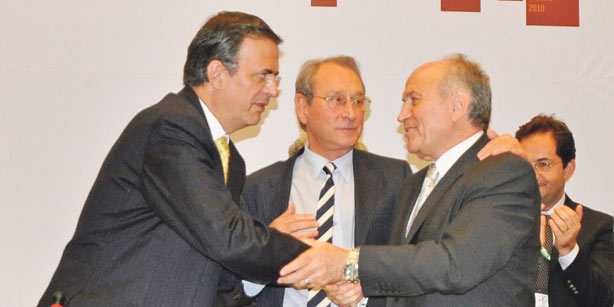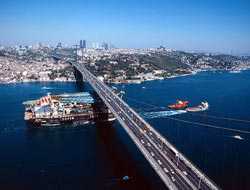Turkish Minister of Transport and Communication Binali Yıldırım has confirmed that a third airport is scheduled to be built on the European side of Istanbul, Anatolia news agency reported Monday.
“The new airport will serve an annual capacity of 60 million passengers and have two separate tarmacs,” Yıldırım told Anatolia, adding that it would be a build-operate-transfer project, a business model that gives building contractors the right to manage new facilities for a certain amount of time before transferring operations to the government.
While Anatolia reported Monday that the exact location of the $5 billion project is yet to be decided, Istanbul Mayor Kadir Topbaş told daily Hürriyet earlier this month the airport would be built in Silivri, on the northern outskirts of the city.
Following the mayor’s statements, some parts of Silivri have started increasing in value, daily Vatan reported Monday. The project is expected to be built on an area of roughly 20,000 square meters, the daily reported.
“This will be among the most prominent airports in Europe and will ease Istanbul’s air traffic congestion,” Yıldırım said.
The minister said civil aviation in Istanbul is developing quickly, with Atatürk Airport on the European side of the city shouldering a major proportion of the traffic, while Sabiha Gökçen Airport on the Anatolian side is also receiving an increasing amount of traffic.
Ministry handles subways
The Transport and Communication Ministry is also set take control of the expansion of both Ankara’s and Istanbul’s subway systems from local municipalities, Yıldırım said, adding that Cabinet planned to formally announce the decision “soon.”
The Railway, Ports and Airports Authority, or DLH, a sub-directorate in the ministry responsible for the construction of railways, ports and airports, will complete the expansion of the two cities’ subway infrastructure in conjunction with private companies.
“In Istanbul, we will carry on with the current contractor, while in Ankara we will continue to cooperate with those eager to make new bids for lines the current contractors are reluctant to commit to,” he said.
“We want to finalize these lines as soon as possible, giving priority to half-finished projects and lines vital for public transportation. It will take two or two and a half years to complete all ongoing subway projects,” he said.




